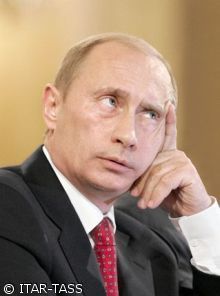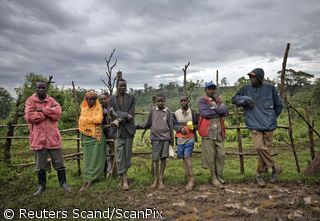It will take the Baltic states some 30 to 50 years to catch up to living standards in current European Union states
Published:
1 July 2003 y., Tuesday
It will take the Baltic states some 30 to 50 years to catch up to living standards in current European Union states, according to a study released this week by the Economist Intelligence Unit. Among Eastern European countries, it said that Estonia and Slovenia would close the economic gap the fastest, roughly reaching EU living standards in 31 years; it said it would take Lithuania 53 years and Latvia 58. Romania will take the longest time to catch up, some 80 years, the London-based research group estimated.
The calculations were made on the basis of relatively optimistic growth scenarios, with annual GDP growth in the Baltics states staying at or above 4 percent for the next several decades. But the report warned that it could take the countries even longer to match standards of wealth farther West if government leaders make the wrong policy choices.
“The true impact depends not on the mere fact of adding countries to the EU club, but on the interplay between policy and the potential that enlargement creates,” said Daniel Franklin, Editorial Director of the Economist Intelligence Unit. Economic performance will vary, and with it the pattern of growth across the EU, but intensified competition in an enlarged single market generally will encourage policies that make markets more open and flexible, the report said.
Šaltinis:
balticsww.com
Copying, publishing, announcing any information from the News.lt portal without written permission of News.lt editorial office is prohibited.
The most popular articles
 Preparations for the traditional Mexican Day of the Dead get underway in Mexico City as residents erect alters and bake bread for the deceased.
more »
Preparations for the traditional Mexican Day of the Dead get underway in Mexico City as residents erect alters and bake bread for the deceased.
more »
 In three resolutions adopted in Strasbourg on Thursday, the European Parliament restates its solidarity with O. Orlov, a member of the Russian human rights organization Memorial and winner of the 2009 EP Sakharov Prize, who is now facing trial, denounces the imprisonment of Cambodian opposition leader S. Rainsy and calls on Zimbabwe's President R. Mugabe to put an end to the threat of mass forced evictions.
more »
In three resolutions adopted in Strasbourg on Thursday, the European Parliament restates its solidarity with O. Orlov, a member of the Russian human rights organization Memorial and winner of the 2009 EP Sakharov Prize, who is now facing trial, denounces the imprisonment of Cambodian opposition leader S. Rainsy and calls on Zimbabwe's President R. Mugabe to put an end to the threat of mass forced evictions.
more »
 Marrying diligent driver behaviour, quality road infrastructure and sound vehicles for safer roads across Europe.
more »
Marrying diligent driver behaviour, quality road infrastructure and sound vehicles for safer roads across Europe.
more »
 A group of journalism students in Moscow pose semi-naked for a steamy calendar wishing Russia's prime minister a happy birthday.
more »
A group of journalism students in Moscow pose semi-naked for a steamy calendar wishing Russia's prime minister a happy birthday.
more »
 In the EU27 in 2008, 20% of women and 32% of men aged 25 to 34 lived with at least one of their parents.
more »
In the EU27 in 2008, 20% of women and 32% of men aged 25 to 34 lived with at least one of their parents.
more »
 “Vertical” health funds targeting specific diseases such as AIDS, malaria or TB have achieved some success, but only at the cost of draining resources from basic “horizontal” health infrastructure such as clinics.
more »
“Vertical” health funds targeting specific diseases such as AIDS, malaria or TB have achieved some success, but only at the cost of draining resources from basic “horizontal” health infrastructure such as clinics.
more »
 This autumn, the 2010 European Job Days give jobseekers a chance to meet employers from all over Europe, and find out about working in other EU countries through seminars and workshops.
more »
This autumn, the 2010 European Job Days give jobseekers a chance to meet employers from all over Europe, and find out about working in other EU countries through seminars and workshops.
more »
 During his visit to New York, on 27 September at the City University of New York, Lithuania’s Minister of Foreign Affairs A. Ažubalis, opened a photography exhibition dedicated to the Lithuanian Jewish cultural heritage and conferred an award of Lithuania’s Ministry of Foreign Affairs on former Executive Director of the YIVO Institute for Jewish Research.
more »
During his visit to New York, on 27 September at the City University of New York, Lithuania’s Minister of Foreign Affairs A. Ažubalis, opened a photography exhibition dedicated to the Lithuanian Jewish cultural heritage and conferred an award of Lithuania’s Ministry of Foreign Affairs on former Executive Director of the YIVO Institute for Jewish Research.
more »
 The 26th of September marks the European Day of Languages. Perhaps the Knights of the Order of St John in the Middle Ages prided themselves about the fact that they had eight “langues” but Parliament does better with its daily “Headlines” on its website in 22 languages.
more »
The 26th of September marks the European Day of Languages. Perhaps the Knights of the Order of St John in the Middle Ages prided themselves about the fact that they had eight “langues” but Parliament does better with its daily “Headlines” on its website in 22 languages.
more »
 A proposed new plan focuses on closing the pay gap and opening up company boardrooms to more women. Tackling domestic violence is also a top priority.
more »
A proposed new plan focuses on closing the pay gap and opening up company boardrooms to more women. Tackling domestic violence is also a top priority.
more »